Here in this guide we are trying to describe more about required vitamins and minerals for baby boer goats. You will learn a lot from this guide.
Boer goats are very popular and among the world famous meat goat breeds. They are an indigenous breed, combined with Angora, European and Indian breeds. During the early 1900s, Boer goats were developed for highly meat production.
They have a very fast growth rate and they can easily adjust themselves to dry, hot and other types of climates. That’s why it’s very easy to raise Boer goats.
They are usually white in color with brown heads. Although you can see a solid white, solid brown or black colored goat.
Required Vitamins and Minerals For Baby Boer Goats
Usually Boer goats are raised for meat production purpose and as show goats. Boer doe produce small amount of milk but they are not suitable for raising as dairy goats. They are very suitable for commercial meat production purpose.
For better production and maximum growth, you have to take good care of your baby Boer goats. They need balanced diet with all types of necessary vitamins and minerals. Here we are describing about required vitamins and minerals for baby Boer goats.
Calcium
Calcium is a very important mineral required for providing good health to a baby Boer goat. Calcium stimulates growth and provides bone health. Providing calcium to the baby Boer goats through natural sources is recommended.
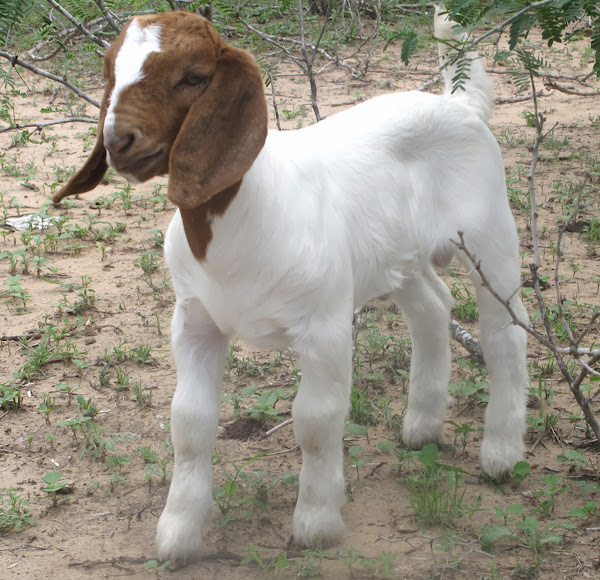
For example, legume and alfalfa hay is good natural source of calcium. As baby goats are growing, so they are losing calcium consistently from their bones. So calcium is needed for maintaining strength and proper growth.
Copper and Iron
Anemia in goats causes due to lack of copper or iron in the regular diet of goat. Providing small amount of iron and copper regularly is sufficient for your goats.
Adjust the amount of iron and copper to the goat’s diet according to the age and size of your Boer goat kids. The Boer kids are prone to iron deficiency who are fed on milk only diet, because of lacking of iron in goat milk.
Iodine and Selenium
Hormones help to regulate the body. These hormones are produced through the thyroid gland of your goats. And iodine is required for maintaining proper thyroid function.
Selenium helps to promote normal growth of your baby goats. Kelp is a great food source which provides selenium and iodine to the baby goat’s diet on a regular basis.
Phosphorus
Phosphorus is a daily necessity for your Boer goat kids. So it’s recommended to mix the Boer kid’s feed with correct proportion of phosphorus.
This mineral is very important for goats, especially for growing goat kids. Beet pulp is a great source of phosphorus.
Salt
Salt is another very important mineral for baby Boer goats. Goats require salt for maintaining their normal bodily functions. Salt is made through the combination of chlorine and sodium.
If you allow your Boer goats to fully access salt, then they will consume a large amount of salt daily. But don’t allow them fully access. Follow a proper dietary and add required amount of salt to their regular feed.
Measure the required amount of salt daily by determining the age, size and weight of your goats. Always try to follow your vet’s suggestion.
Vitamins A, D and E
Usually green plants provide beta-carotene. And beta-carotene provides vitamin A to the goat’s regular diet. And Boer goats store Vitamin A in their liver and use the reserved vitamin A when the amount of greens are less in their daily diet.
Goats absorb vitamin D through their skin while being outdoors or browsing. Another good source of vitamin D is sun-cured hay. Vitamin E also needed for your baby Boer goats. This vitamin allows normal growth by working with the mineral selenium.
These are the common and required vitamins and minerals for baby Boer goats. Always try to consult with your vet while adding or removing any minerals or vitamins on you Boer goat kid’s diet. Otherwise it will harm your goats health instead of being benefited.
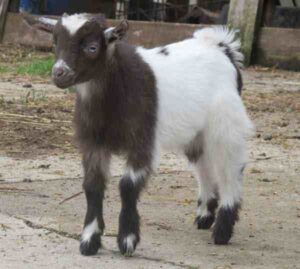
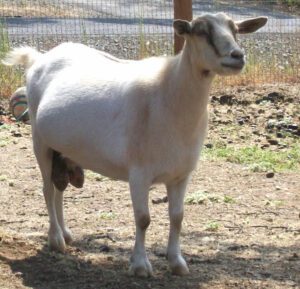
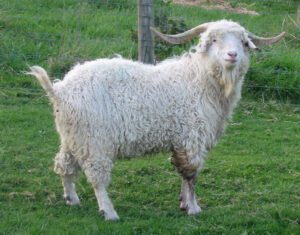
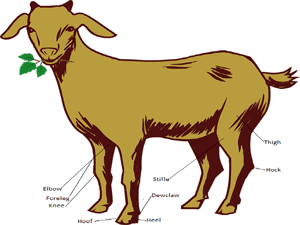
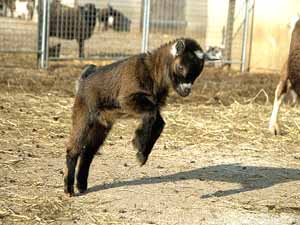
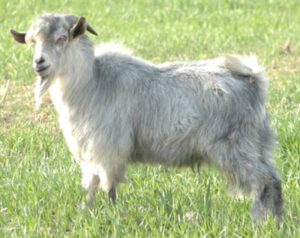
How can I tell that my goats are suffering from vitamin and mineral deficiency?
Detecting vitamin and mineral deficiencies in goats can be challenging because the symptoms can overlap with other health issues. However, is is possible to identify potential deficiencies in your goats. Slower growth or weight loss in goat kids may indicate a deficiency in essential nutrients. Keep track of their growth rates and weight gain. If you have dairy goats, a decrease in milk production may signal a deficiency, especially in calcium or phosphorus. Deficiencies in minerals like selenium or vitamin E can lead to muscle weakness, stiffness, or difficulty in moving. Goats with nutrient deficiencies may appear lethargic, weak, or unwilling to move. Dull, rough, or patchy fur can be a sign of vitamin or mineral imbalances. Goats with deficiencies may lose interest in eating, leading to decreased feed consumption. Changes in behavior, such as restlessness or nervousness, can be indicative of health issues, including deficiencies. Rickets, a condition characterized by weak and deformed bones, can result from calcium or vitamin D deficiencies. Consult with a veterinarian who can perform blood tests or tissue analyses to identify specific deficiencies. Good luck!